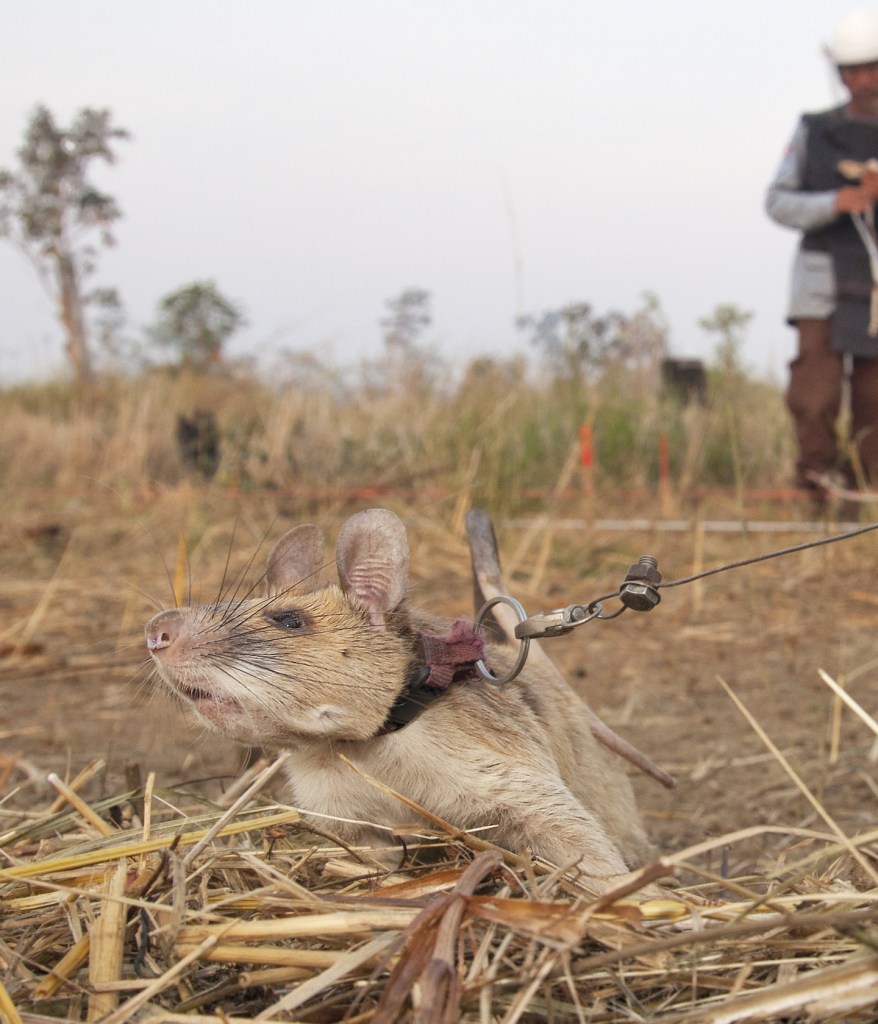Here’s Sophea serving up rice wine at her café. This particular blend contains pickled deer dick and an entire slow loris, a tree-dwelling primate (inset courtesy of AP). You can just make out his rotting face there. Photos by Heng Sinith
Stop the presses. “This just in: Weird shit eaten in Asia!” an editor cried, reacting to more coverage of fried-tarantula consumption coming over the wires. We’re at the office of The Cambodia Daily, a former cathouse given to disrepair and the odd insect plague. The story is evergreen—greasy spiders eaten at a crossroads village outside Phnom Penh, more news of the weird from this backwater kingdom.
Cricket-eaters, snake-eaters, frog-eaters, monkey-eaters, the occasional drunken cannibal—25 years after being starved and stoved by Pol Pot’s cadres, a lot of Cambodians are still hungry. Today, Prime Minister Hun Sen continues the country’s tradition of shockingly dim-witted, thuggish rule.
A cyclops who had an eye shot out when he himself was a Khmer Rouge soldier, Hun Sen keeps the country in line with profiteering toadies like Phnom Penh governor Kep Chuktema, who addressed stepping in dog crap and the capital’s poverty by urging people to eat more dog.
“Come on, dog meat is so delicious,” Chuktema told a Daily reporter in 2003. “Poor people don’t have wine, but they can enjoy dog meat with fermented palm juice.”
But farther north in the dirt-poor province of Preah Vihear, a community of daring epicureans has shown itself more resourceful than the rest, dining on the intestinal silage of browsers and grazers.
At her roadside café, Sophea lifts the lid on a large pot, revealing a tiny deer’s viscera floating in a green broth. Steam rises, as does an unmistakable stench.
The pot holds pi pia, and, although members of the area’s Kuy tribe have been eating it for much longer, it’s been the signature dish of Phnom Dek village since 1998. That’s when Sophea’s husband returned from a trip to Laos, where the Kuy also live, and reported money being made there in septic soup.
Sophea served it, and its popularity spawned competitors across the road. Farmers, she says, especially favor pi pia for its rejuvenating powers.
But a growing scarcity of game means pi pia doesn’t make the menu every day. Hunters must pursue quarry farther afield. If more than a day’s walk, they’ll gut a kill on the spot to slow putrefaction, sacrificing the soup’s ingredients.
Despite having fathered the family business, Sophea’s husband is dismissive of pi pia. “It smells like shit,” Vunheng says, “but the people still like it.”
He extols a superior use of deer crap—hooch. “The shit smells sweet with the wine, like the juice of the jackfruit.”
It’s a sound-enough approach to life in Cambodia.
BOO CALHOUN




